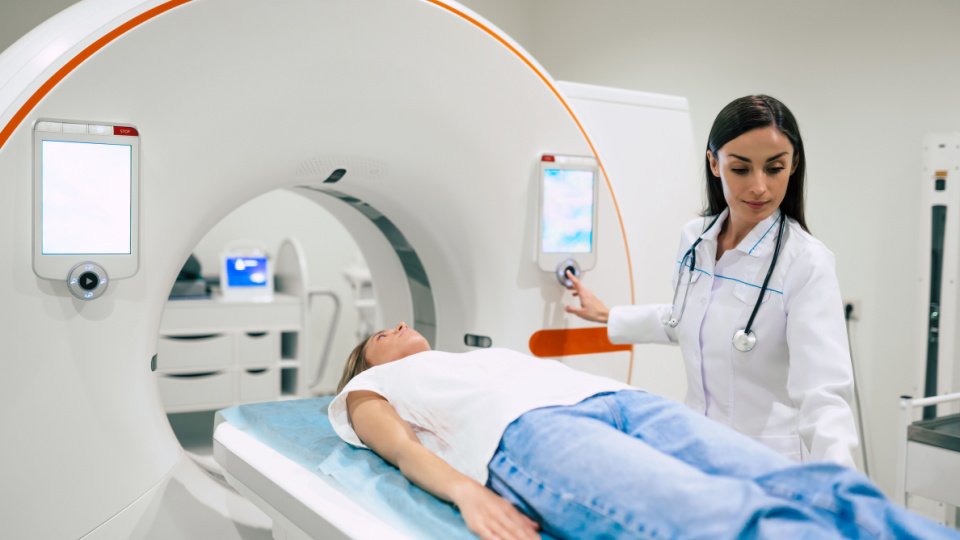Neurology
Interesting, informative and hopeful facts from the field of neurology ...
What is Neurology? And Why Does It Matter?
Let’s look at what neurology truly is. Neurology specialises in diagnosing and treating illnesses of the mind, spinal cord and peripheral nerves. Whether you’re dealing with something as common as a headache or as complicated as a brain tumour, neurology deals with situations that can have an intense impact on your normal existence.
From stroke to epilepsy, Parkinson’s, ALS, Multiple Sclerosis or maybe brain tumors, neurology performs a important role in diagnosing and supplying treatments that can make the best of life but also sustain lives. The neurological troubles may sound overwhelming but modern-day remedy offers several treatment alternatives. Those alternatives can significantly alter the route of an affected person’s lifestyle for the higher.
Exploring Neurological Treatments in Turkey: A New Hope for Better Health
If you’ve ever had a headache that in truth wouldn’t go away, or in case you’ve witnessed a person near you conflict with a neurological disease like Parkinson or a stroke, you recognize how tough it can be. The nervous system controls the whole lot in our bodies—from movement to memory—and at the equal time as some thing is going wrong, it can have an effect on each part of existence. Fortunately, with advances in neurology and neurosurgery, there are certainly greater alternatives than ever for people looking for treatment.
Turkey has emerged as a major place for those looking for expert care of neurological situations. Some benefits of health tourism in Turkey are the worldwide renowned clinical doctors, modern centers, and affordable prices.
In this post you will have a few insights about the form of neurological treatments available in Turkey and why it can be a exquisite desire for you or your circle of relatives.

Why Choose Turkey for Neurology and Neurosurgery?
If you’re thinking about treatment for a neurological sickness, you are probably wondering, “Why Turkey?” The answer is actually simple. Extremely good healthcare services, professional doctors, and the affordable prices.
1. Skilled Neurologists and Neurosurgeons
Many of Turkey’s neurologists and neurosurgeons are experts in their area. These doctors help many people with the newest technology and their expertise in neurological treatments. It doesn’t make a difference if you are looking for a simple solution or something more advanced like Deep Brain Stimulation (DBS) for Parkinson’s. You’re in the right hands with Turkish professionals.
2. Affordable Treatment Without Sacrificing Quality
One of the vital elements of hobby of medical tourism in Turkey is the affordability of remedy. Neurosurgical techniques, prolonged health facility stays, and rehabilitation can be especially expensive in places much like the us or the UK. In Turkey, you’ll get maintain of the same excessive diploma of care at a fraction of the charge. For many sufferers, this makes Turkey a exceptional excursion spot for notable care without breaking the economic business corporation.
3. State-of-the-Art Medical Facilities
Turkey is home to a number of top neurological clinics and hospitals internationally. You can be sure that you will be treated with modern equipments. It doesn’t matter what you are searching for. A diagnostic test, minimally invasive surgical procedure, or post-operative care… Turkey’s medical facilities are organized to cope with all of it.
4. Focus on Patient-Centered Care
One of the biggest benefits of trying to find remedy in Turkey is the focus on patient centered care. Turkish culture is known for its warmness. Hospitals / Clinics are offering a unique experience.
Common Neurological Treatments Available in Turkey
Let’s talk about the treatment options. It doesn’t makes a difference if you need help with a well known situation like migraines or like surgical operation. Turkey has wide range of services to provide.
1. Stroke Treatment: Quick Action, Big Impact
A stroke is a life threatening occasion that calls for proper care out of hospital. Turkey is home to top hospitals that specialize in stroke along with the issue thrombectomy (casting off blood clots) and thrombolysis (clot-busting capsules. Each of them want to be applied fast to limit damage to the mind. Time is key. So the earlier a stroke is treated, the higher the possibilities for healing. Each of them need to be applied fast to limit damage to the mind.
2. Parkinson’s Disease: Movement Disorders and DBS Surgery
Living with Parkinson’s can be pretty difficult, especially as the condition progresses. But thanks to modern generation, remedies like Deep Brain Stimulation (DBS) have made a huge difference for human beings with Parkinson’s. DBS is a surgical treatment that consists of implanting a device that sends electric powered impulses to areas of the mind responsible for movement. This can drastically reduce symptoms and signs like tremors and stiffness, enhancing terrific of lifestyles.
In Turkey, DBS surgical remedy is done through professional surgeons who use the modern day strategies.
3. Epilepsy Surgery: Regaining Control Over Seizures
For people whose epilepsy isn’t controlled with medicine, epilepsy surgery may be a game changer. In Turkey, hospitals provide numerous surgical alternatives eg. like stem cell therapy to assist reduce or eliminate seizures. In some times, part of the mind that’s inflicting seizures is surgically eliminated. At the equal time as unique strategies like neurostimulation may be used to prevent seizures from taking place.
Turkey has some of the extraordinary epilepsy facilities wherein you may get a second opinion or find out surgical remedies.
4. Brain Tumor Surgery: Removing Tumors Safely
Brain tumors are regularly dealt with via surgical treatment. Turkey has many hospitals focusing on neurosurgery to remove or reduce those tumors. They use the modern day neuroimaging strategies. The surgeons in Turkey can exactly discover tumors and reduce harm to surrounding tissues. The doctors will take the best possible action whether you’re coping with a benign or malignant tumor.
5. Multiple Sclerosis (MS): Slowing Disease Progression
For human beings with Multiple Sclerosis (MS), Turkey offers every traditional treatments and also contemporary alternatives like stem cell therapy. MS is a chronic circumstance that affects enormously, and at the same time as there’s no remedy, treatments can help to slow the improvement of infection and enhance the quality of life. Turkey’s MS specialists can supply Disease Modification Techniques (DMTs) to assist control signs and symptoms and reduce attacks.
What to Expect from Neurosurgery in Turkey
If you’re getting treated in the neurosurgery area in Turkey, right here’s what you may count on:
- Consultation: Your adventure will begin with a consultation in which your situation is classified through an professional neurologist. You’ll communicate treatment alternatives and risks.
- Surgery: Procedures like craniotomy, spinal fusion, or DBS surgery are all performed with the modern-day strategies. Hospitals in Turkey are equipped with current surgical device to ensure precision and protection.
- Recovery: Recovery instances will range relying on the method. You’ll generally spend numerous days in the hospital. Depending on the method there will be rehabilitation visits. Rehabilitation facilities in Turkey provide whole care to help patients get better safely.

Ready to Explore Your Treatment Options?
It is essential to get the proper treatment whether you’re dealing with a neurological situation yourself or a person you know. In Turkey, you can find out every global healthcare with affordable prices.
If you’re considering treatment options, MedClinics is here to help. We can connect you with the experts in neurology and neurosurgery and guide you through your remedy journey.
Don’t let a neurological situation affect your excellent life greatly. Contact us these days and we will get back to you with the topics you need!
Top Neurosurgery costs by country
The cost of neurosurgery depends on the experience of the surgeon, the technique used, the clinic or hospital you choose and your individual health condition.
The prices listed below are intended to give you an approximate idea and are not a final quotation. Your MedClincs consultant will be happy to provide you with details.
| Country | Price | Rating |
|---|---|---|
| Türkiye (Turkey) | ~ €8,500-€21,000 | ★★★★★ |
| Lithuania | ~ €6,800-€15,300 | ★★ |
| Poland | ~ €6,800-€17,000 | ★★ |
| USA | ~ €25,500-€85,000 | ★★★ |
| Germany | ~ €17,000-€34,000 | ★★ |
FAQ
What neurology means?
Neurology is the study and medical specialty focused on the diagnosis and treatment of disorders related to the nervous system. It is related to the brain, spinal cord, and peripheral nerves.
How neurological examination is done?
A neurological examination involves a series of tests and assessments to evaluate the function of the nervous system. It includes assessing the patient’s medical history, performing a physical examination to test reflexes, muscle strength, coordination and sensation. Cognitive function and cranial nerves are also assessed. Depending on the findings, additional tests such as imaging or blood tests may be ordered. The examination helps to identify abnormalities, directs further investigations and informs treatment decisions.
What neurology do?
Neurology involves diagnosing, treating, and managing disorders of the nervous system. Neurologists perform examinations, order tests, and develop treatment plans for conditions such as stroke, epilepsy, dementia, Parkinson’s disease, and more. They work closely with other healthcare professionals and conduct research to advance understanding and treatment options.
How neurosurgery is performed?
Neurosurgery is performed by skilled neurosurgeons using advanced techniques and equipment. It typically involves making an incision, accessing the targeted area in the brain or spine, performing the necessary surgical intervention and then closing the incision. The surgery is performed under general anaesthesia and the patient receives post-operative care to ensure proper recovery. The specific procedures and techniques vary depending on the condition being treated.
Why neurosurgery is worth it?
Neurosurgery is worth because it can effectively treat serious neurological conditions, improve quality of life, preserve or restore neurological function, utilise advanced diagnostic and therapeutic capabilities, apply a multidisciplinary approach and take advantage of advances in technology and techniques. The decision to undergo neurosurgery should be made in consultation with a neurosurgeon, weighing the potential benefits and risks according to individual circumstances.
What are the most common reasons for neurosurgery?
The most common reasons for neurosurgery include brain tumors, spinal disorders, stroke, hydrocephalus, epilepsy, traumatic brain injury, aneurysms and vascular malformations, and movement disorders.
What does neurosurgeon do?
Neurosurgeons diagnose and treat conditions of the nervous system through complex surgical procedures. They develop treatment plans, collaborate with a multidisciplinary team, perform surgeries, and provide postoperative care. Their goal is to alleviate symptoms, restore function, and improve the overall well-being of patients with neurological conditions.
Which country is best for neurosurgery?
The United States, Germany, Canada, the United Kingdom, Switzerland, Japan, and Turkey are among the best countries for neurosurgery due to their advanced medical facilities, highly trained neurosurgeons, and excellent standards of care.
Is neurosurgery dangerous?
Neurosurgery carries some risks, but is generally considered safe due to advances in surgical techniques and care. Neurosurgeons are highly trained to minimise risks and ensure patient safety.
What is the success rate of neurosurgery?
The success rate of neurosurgery varies greatly depending on the procedure and the specific circumstances. However, overall success rates for neurosurgical procedures can range from 70% to 90% or higher.
History
Neurology has a rich history dating back to ancient civilizations.
Significant developments were experienced during the Renaissance and Enlightenment periods and the 19th century witnessed important breakthroughs by names such as Jean-Martin Charcot. The 20th century brought significant progress with the development of neuroimaging techniques and surgical interventions. Recent years have witnessed advances in genetics and molecular biology. Today, neurology encompasses a variety of subspecialities and continues to evolve through ongoing research and interdisciplinary collaborations.
Most Common Neurological Diseases and
Types of Treatments
Request Form
Get your free consultation
- Need guidance and reassurance?
- Talk to a real person from MedClinics!
- Let's find the perfect doctor together.
